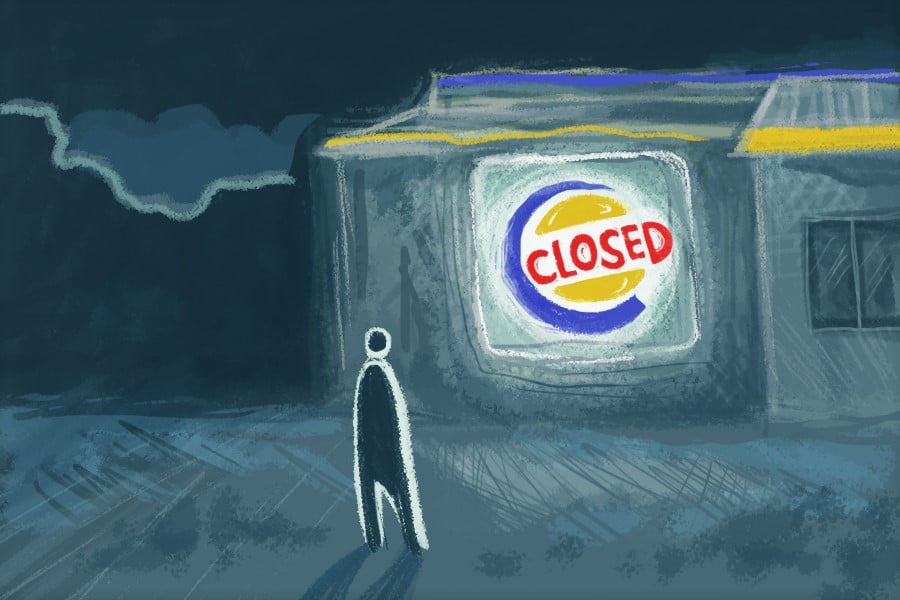Weinberg junior works to get more late-night dining in Evanston
The former Burger King location in downtown Evanston was among the many restaurants that closed during the pandemic.
January 25, 2021
After seeing two memes that criticized Evanston for lacking late-night dining options as a college-town, Weinberg junior Jacob Brown sprung into action.
Brown thought he would need to push for a change in city code, but learned after a meeting with Mayor Steve Hagerty that a lack of demand has caused late-night dining places to close. He shifted his focus to gathering information about possible late-night dining options for the future.
“There’s the connotation that Evanston has these archaic laws and that there’s no places that stay open late, when clearly that isn’t the case,” Brown said.
Brown connected with Ald. Don Wilson (4th) in early January. The two attended the first Associated Student Government meeting of the Winter Quarter to gain input on economic initiatives. In response to a comment about the “archaic laws,” Wilson told ASG that Evanston has evolved in a more “positive and liberal direction” over the past 10 years. For example, Insomnia Cookies was given a special use permit to be open until 3 a.m.
“We saw places like Burger King, Taco Bell and McDonald’s in the past not do well enough to stay open, even though students say they want these cheap late-night options,” Brown said.
Brown said he believes students need to show their demand for late-night options through their spending to remedy the lack of demand.
Weinberg senior Lucy Weidner, who made the memes that inspired Brown, said Burger King used to be packed at 2 a.m before it closed. The comments on her meme post echoed Weidner’s desire for more late-night options.
“It is a common thought by a lot of people who go to the school that this is not the best college town and it feels a lot of times like the surrounding township doesn’t necessarily love us,” Weidner said.
Communications sophomore Jo Scaletty said she is frustrated by the lack of late-night dining options, especially since these places tend to be more affordable.
“I think that (the recent closings) further put lower income students at a disadvantage compared to their wealthier peers,” Scaletty said.
Brown said he wants to work with the city of Evanston to gain clarity on how businesses can obtain special use permits to stay open later and to evaluate the Chamber of Commerce’s plans for economic development after the pandemic.
“Collaborating between Northwestern and the City of Evanston is the best way that we could potentially see change on this issue,” Brown said.
Email: [email protected]
Twitter: @EmmaCRosenbaum
Related Stories:
— ASG talks leadership changes and late-night dining, passes FMO enshrinement
— After more than 40 years, Evanston Burger King closes doors permanently


